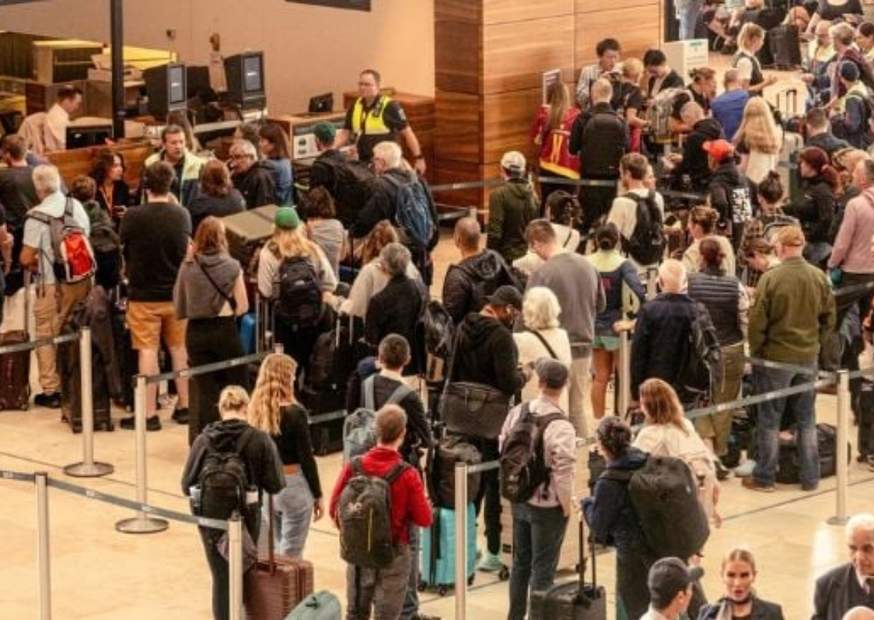LONDON: British authorities have arrested a man in his 40s in connection with a major cyberattack that crippled check-in systems at several European airports, causing severe disruptions to air travel and raising concerns over the vulnerability of aviation infrastructure.
The cyber strike targeted Collins Aerospace, a leading provider of airline check-in and boarding systems owned by RTX, forcing multiple airlines to revert to manual check-in processes. The incident led to widespread delays and cancellations at major airports including London Heathrow, Berlin, and Brussels, leaving thousands of passengers stranded or facing long queues.
The suspect was detained under the Computer Misuse Act and later released on conditional bail while investigations continue. According to the UK’s National Crime Agency (NCA), the inquiry remains at an early stage, with officials warning that the scale and sophistication of the attack point to serious gaps in cyber defences.
Deputy Director of the NCA, Paul Foster, termed the arrest a “positive step” but stressed that authorities are still working to establish the full scope of the attack and whether wider networks were involved. Interestingly, no known ransomware group has yet claimed responsibility or leaked data online, a move that often follows such high-profile breaches.
The incident has reignited debate on the cybersecurity readiness of Europe’s critical infrastructure, especially the aviation sector, which remains a high-value target for hackers. Analysts believe this attack could trigger urgent calls for stronger international cooperation and investment in digital safeguards to prevent future disruptions of this scale.
As investigations expand, both passengers and airlines are left grappling with the fallout of an attack that not only exposed security weaknesses but also highlighted how modern air travel can be brought to its knees by a single digital breach.
This story has been reported by PakTribune. All rights reserved.



